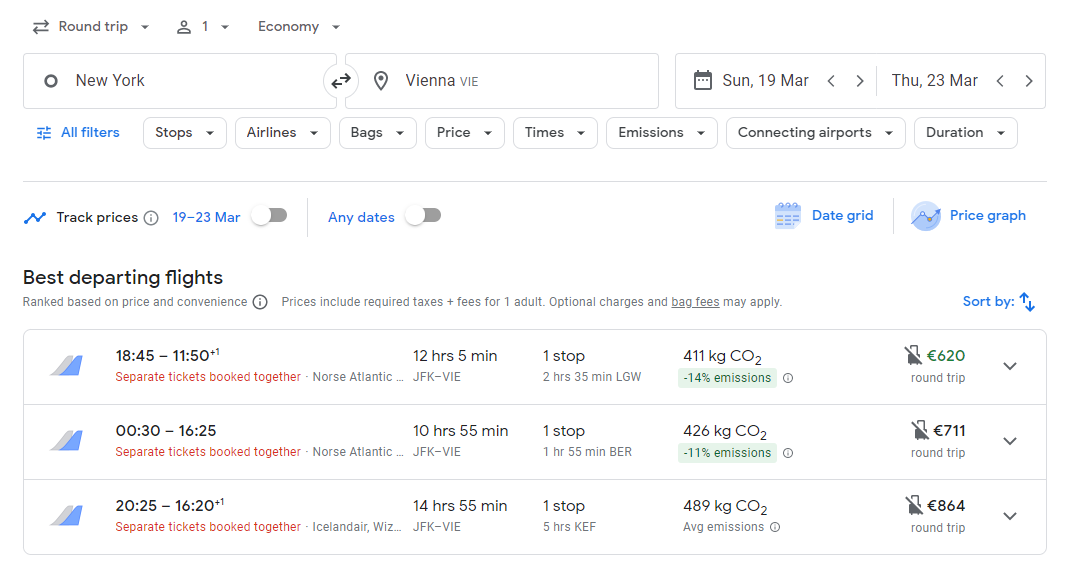All Ⓜ️ostlies can help protect the environment and the local communities, as well as preserve and protect natural and cultural resources.
Transportation
Being carbon neutral is good for MOSTLY AI and… for you! There are some parts of our carbon footprint that we can’t control, but one area where we can is travel. If possible, avoid traveling. Use Google Hangouts or Zoom instead. This saves time, resources, and CO2. If you really have to travel (for an event, a Co-Lab Day, etc):
-
Can you take a ferry, train or bus?
For domestic trips up to certain travel distances it can be more convenient to travel on the ground, especially if your local airport has long queues.
Air travel produces more CO2/km travelled than ferry, trains, coaches or cars. Airplanes burn large amounts of fossil fuels, producing significant greenhouse gas emissions. That makes taking fewer flights one of the fastest ways to reduce your environmental impact. When you can, meet virtually, take a train, or skip that long-distance trip altogether. Taking one less long-haul return flight can reduce your carbon footprint by up to almost 2 tons of CO2e.
However, as an international company with oceans between some members of our team, sometimes there is no way to avoid all flights.
-
If you really have to fly
Not every flight has the same emissions. Google Flights will show you the emissions for each flight to help you make an informed decision.
Accommodation, water and energy
Beyond transportation, traveling also relies on energy for heating, lighting, and electricity. This along with intensive water use by travelers can put great strain on local water supplies and energy infrastructure. Travelers often consume significantly more water and energy than local residents and many destinations struggle to keep up with the demand. As global temperatures rise and the population grows, it will exacerbate this problem even further.
When you’re away on a trip, do what you can to conserve local water and energy resources. Turn off the lights, TV, and any other electronics when not in use. When leaving your hotel, turn off the AC or set the thermostat a few degrees higher. Take a shower instead of a bath and keep it as short as possible. Handwash your own clothes and hang up the “Do Not Disturb Sign” to prevent unnecessary laundering.
You can also reduce your environmental footprint by staying in a low impact accommodation. This could either be a smaller, more basic accommodation or a higher-end property that utilizes renewable energy and water/energy efficient technologies.
Avoid single-use plastics
Every year, 8 million metric tons of plastic ends up in our oceans. This is equivalent to one garbage truck full of plastic being dumped into the ocean every single minute of every single day.
One of the most common plastic items used by travellers is single-use beverage bottles. But there’s a simple solution: bring your own MOSTLY AI reusable water bottle on your trip!
The 🌍 says thanks!
